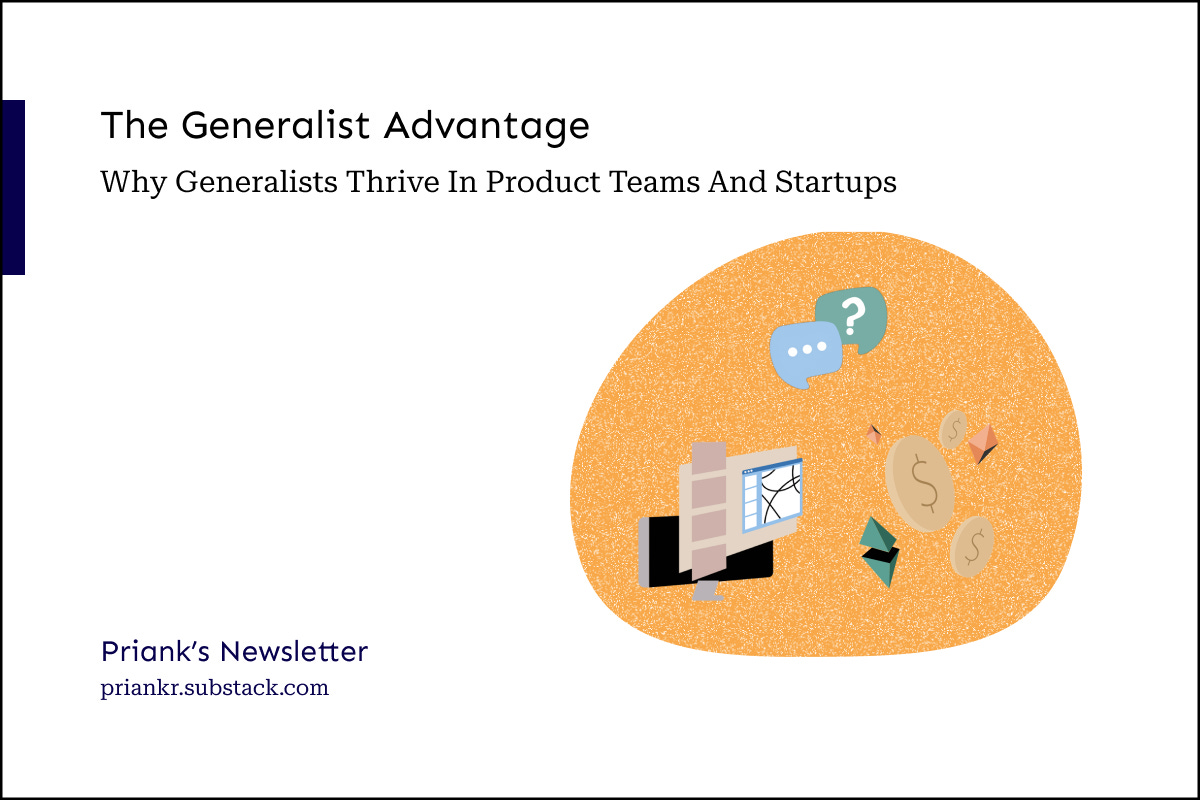All organizations need people skilled at filling in the gaps between different functions. Often, these people can’t explain what they do in a single sentence because, in reality, their work doesn’t neatly fit into a single category. These are the generalists, and I’ve been one for a long time.
In most of my roles, I have had to do a little bit of everything. I never knew what job title best described what I could do, but I was confident in my ability to figure things out. In my attempts to find clarity, I have had many discussions with professionals across different functions. I learned about their roles and how they got there. Eventually, I determined that the product manager role was the best fit for my interests and skill set.
Product management is inherently cross-functional. It requires diverse capabilities, which is perfect for generalists. The main challenge was reframing my knowledge and expertise in the product context. However, the work itself was not new to me. It finally felt like I found a place where I could leverage all my capabilities. It helped me recognize the unique value of being a generalist in fast-paced, dynamic environments like product teams and startups. I would like to highlight key advantages generalists have when pursuing a career working in product.
Takeaways
Generalists have three key advantages
They help different functions collaborate more effectively.
They can rapidly adapt to changing demands and business needs.
They bring a broader perspective to the solution development process.
Bridging The Gaps
Generalists help different functions collaborate more effectively.
Specialists are essential for building great products. However, just putting a bunch of experts in a room is not enough. They have to channel their efforts in the right direction. Communicating effectively across departments is key to building successful solutions. Generalists can often serve as highly effective facilitators in these situations. They can see the bigger picture and understand each team’s specific context. They serve as translators between them, ensuring that engineering, design, and marketing (and more) are aligned and working toward the same goals.
Adapting To Uncertainty
Generalists can rapidly adapt to changing demands and business needs.
Startups are inherently unpredictable environments. You are dealing with evolving customer needs, shifting business priorities, and fluctuating market conditions. When things can change fast, you need people who can quickly pivot and tackle new challenges. Generalists excel in these settings because they possess a versatile skill set. Their ability to switch between tasks makes them highly valuable in startups, where speed and flexibility are essential for effectively building products, especially with limited resources.
Using Unconventional Wisdom
Generalists bring a broader perspective to the solution development process.
Often our thinking is limited to our specific context (or domain). Specialists usually struggle with thinking outside the box because they have such deep knowledge in their field. However, generalists possess a high-level understanding of many disciplines. They rapidly absorb and apply information as they have to manage a broad range of tasks. They become skilled at recognizing patterns and connecting the dots. They are not restricted by conventional approaches or biases, which lets them solve creatively problem-solve.
Conclusion
The business landscape is becoming more demanding. Companies are being asked to innovate faster and meet higher customer expectations, with tighter budgets and smaller teams. In these conditions, generalists offer a critical advantage. They can step into evolving roles, adapt to new challenges, and contribute across multiple functions. For generalists, this opens up career paths that are less linear but rich in learning opportunities, growth, and impact. Their adaptability alone can position them as indispensable team members
Generalists holistically evaluate solutions to determine how they can be used to address **real customer and business problems. Their lack of deep expertise actually allows them to focus on practical applications that benefit the end user. In an increasingly complex and rapidly changing world, flexibility and versatility are more important than ever. Generalists aren’t just jack-of-all-trades—they are the linchpins of successful organizations.
Thanks For Reading
If you haven’t already, please consider subscribing and sharing this newsletter with a friend.
I hope you have a great week!





